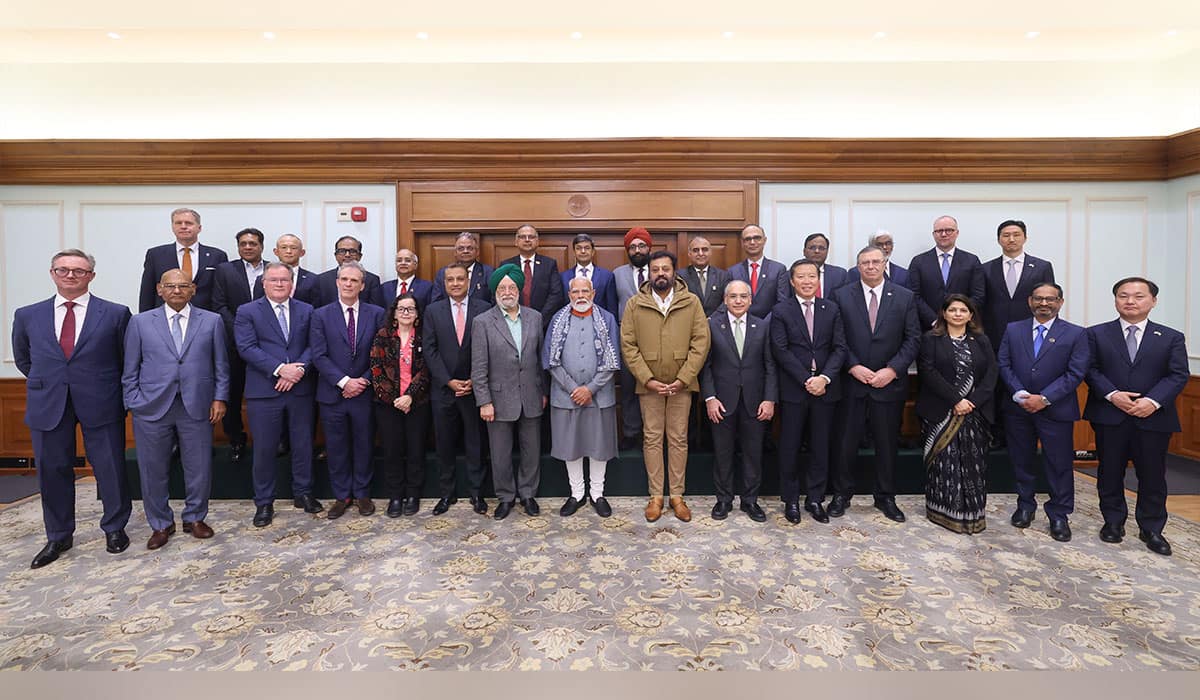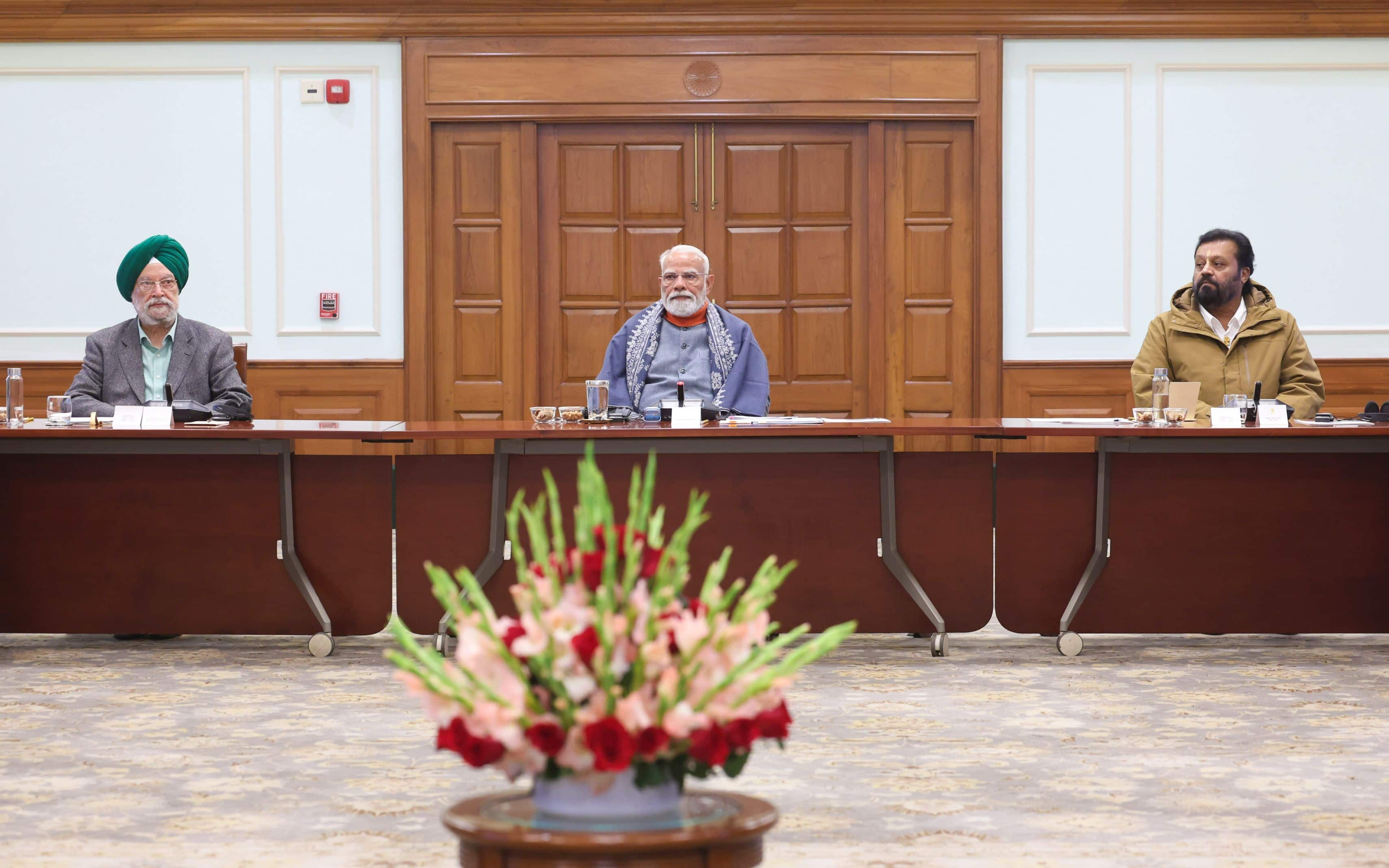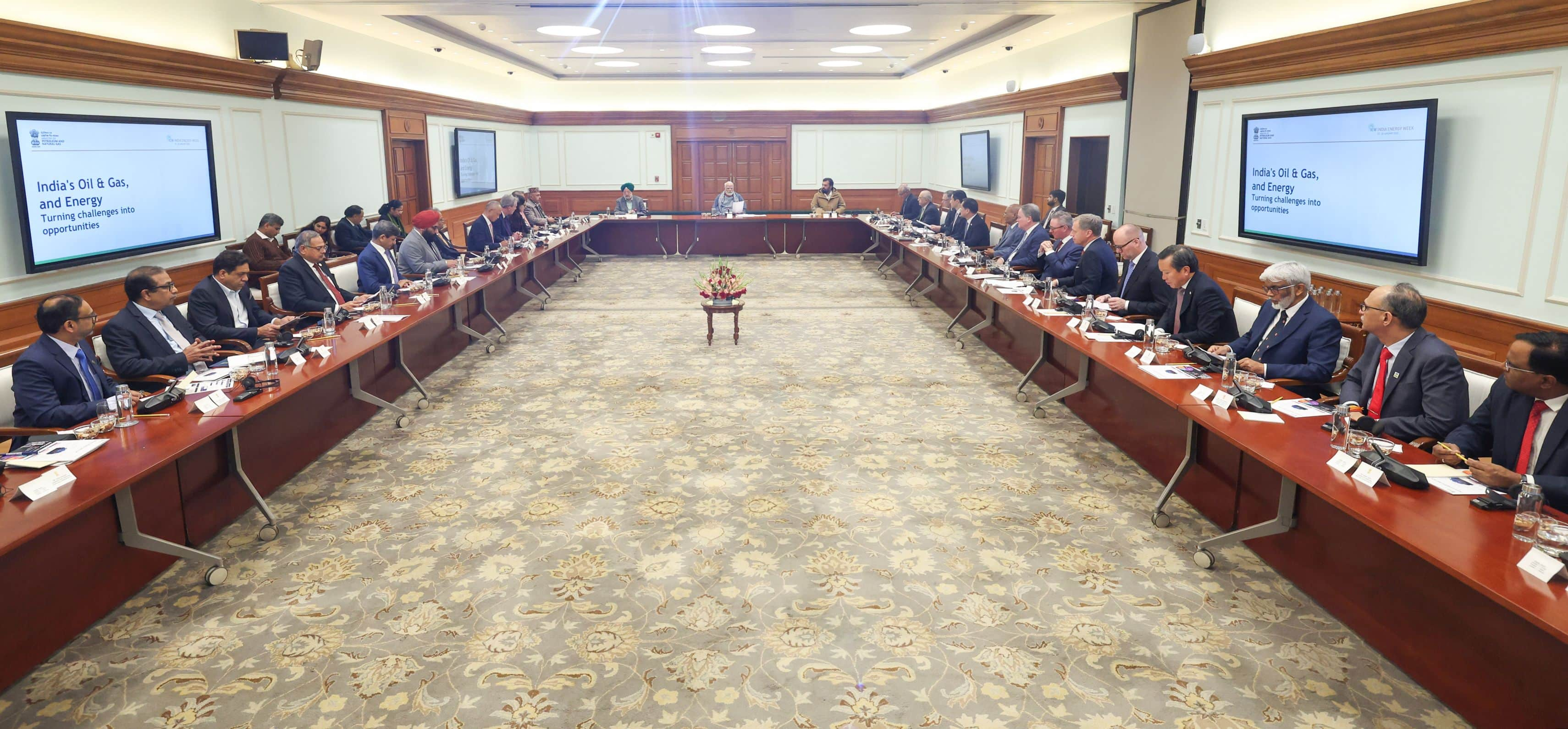His Excellency President Rahmon,
Officials and Experts from India and Tajikistan
And distinguished guests
I am truly delighted to visit Tajikistan.
We have links of history, the proximity of geography, the unity of spirit and harmony of our hopes. Above all, we have extraordinary goodwill between our people.
This is a very special event. It is one of the most important that I have attended in my journey through five Central Asian nations in the course of the past week.
I have travelled to many countries around the world. Wherever I have been, there is usually an event of this nature for trade, manufacturing or finance.
This is the first time we have a joint event on agriculture, especially on a scale as large as this.
Mr. President, thank you for the interest you have shown in this workshop. It is a mark of your vision for Tajikistan's development.
As in the world of business, international partnerships can also be catalysts for the development of agriculture. India's own Green Revolution is a visible and successful proof of that.
It should be natural for India and Tajikistan to collaborate in agriculture, live stocks and dairy.
We share many similar natural features. We are defined by mountains, rivers, sharp turns in seasons and fertility of soil.
We are nations where a majority of the population live off the land.
We both have shortage of cultivable land relative to our needs, especially when I compare ourselves to some of the countries I have visited.
I know that with less than ten per cent of area as land fit for cultivation, Tajikistan faces this constraint more than we do.
We both have pockets of abundance of freshwater, but we have both faced the challenge of managing our irrigation.

Now we all face the impact of climate change on our agriculture.
We can understand some of the problems that Tajikistan is facing today, because we have gone through that path ourselves.
So, our solutions and our experiences may be more relevant to Tajikistan than, perhaps, what more advanced nations may have to offer.
That is why our cooperation can be more fruitful for Tajikistan.
After we gained independence in 1947, our journey in the agriculture sector has been remarkable. We faced many challenges – from small farms and low productivity to inadequate irrigation and infrastructure.
Today, we are self-sufficient in food grains and one of the major exporters of farm produce and animal products.
We are the world's largest producer of milk, one of the top producers of fruits and vegetables and one of the three leading producers of fisheries.
Along the way, we have created a resource base that will be of great value to our friends in Tajikistan.
We have world class institutions of research and training in agriculture, dairy and live-stocks under every possible climatic condition.
We have developed farming techniques and farm equipment that are affordable and effective.
We have created the most successful cooperative movement in dairy and one of the best dairy processing industries in the world.
We have good seeds and processing technology and equipment. Some of these might be especially useful for cotton farming. And, we have done well with micro irrigation systems.
We do still have a lot of challenges in agriculture in India. And, with the ancient creed of "अन्नदाता सुखी भाव" – may the provider of food be happy – we have launched many new initiatives to make our farms yield more and our farmers more prosperous.
And, they cover everything from the health of farm soil to getting the most out of every drop of water; from access to markets to covering risks; from providing infrastructure to developing new technologies.
Nothing will give us more joy than the opportunity to share all that we have with our friends.

It comes from our ancient belief that we enrich ourselves when we share our fruits. It is a principle that also defines the great people of Tajikistan.
So, we would be happy to open the doors of our institutions to your scientists and experts.
We can help in increasing the range of crops you produce and the number of crops you get in a year. Greenhouse cultivation is a process that will be well suited for Tajikistan.
We can collaborate in developing hybrids of cotton and wheat, two of your most important crops, so that they yield more and have greater resilience. This will reduce risks for farmers and increase the supply to consumers.
We can share our experience in contract farming and developing the dairy industry, including dairy processing plants. Indeed, for Tajikistan, dairy and live stocks hold great potential to make up for the constraints of land.
As part of our development partnership, we can explore credit support for supply of farm and post-harvest processing equipment to Tajikistan.
We can work with you in water conservation and micro-irrigation, and in improving the health of the farm soil here. In India, we have launched a soil health card, just as the farmer might have his own health card.
We can support the use of Space technology for better resource management.
We have shared much with each other through the ages, including fruits and vegetables and our cuisines.
Today, the possibilities of cooperation are endless. Realising them is important.
India and Tajikistan are strategic partners. This is one of our closest and most important relationships in the region.
Ours is a shared enterprise of promoting development and prosperity in our two countries. It is also a partnership for promoting peace and stability in the region.
We can't achieve prosperity unless development reaches the majority that lives off the land.
That is how we can create a strong and stable society that can withstand the turmoil of our times and contribute to regional peace and stability.
So, our cooperation in agriculture is central to the shared vision and aspirations of India and Tajikistan.
Today I complete my tour of Central Asia. I
return to India convinced that India and Central Asia must reconnect. It is important for the future that we seek for our countries and our region.
So, we will improve our surface connectivity, as well as our digital and air connectivity. We will reach you through Iran and other Central Asian countries.
But, I also hope that India and Tajikistan can connect directly, as we once were in history.
Because, that will not only be the most natural way to trade, it will also bring benefits to everyone along the route.
However, even as we build our connectivity, we will not wait.
We will deepen our cooperation in agriculture and transform our relationship in every field of human endeavour.
Because, the more we touch the life of every human being through our cooperation, more worthy will our cause be and stronger and more resilient will our relationship be.
That is why this event today is so important for me.
It reinforces my belief in the strength of India-Tajikistan relations and confidence in a great future of our strategic partnership.
I wish you all great success. I thank the participant. I thank you, Mr. President, for your presence and your leadership.
Thank you, very much.

















